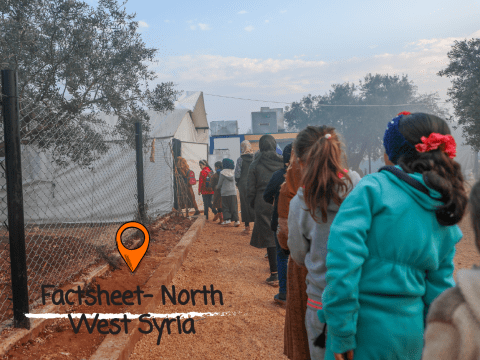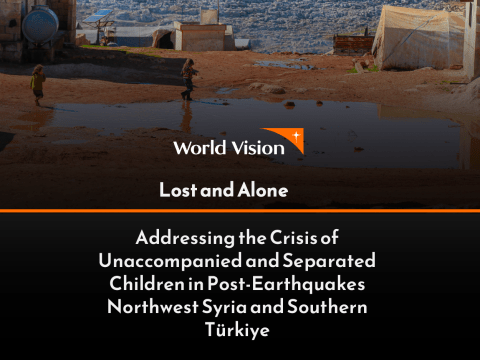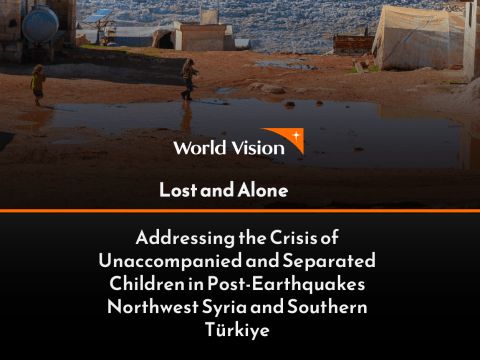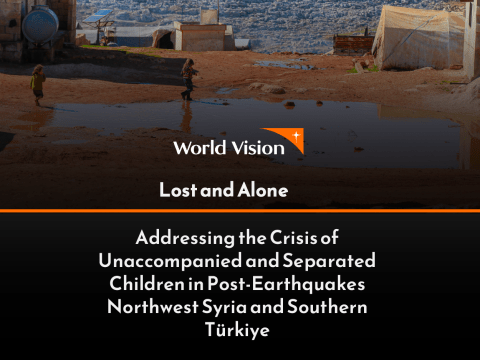FACT SHEET: WORLD VISION SYRIA RESPONSE (WVSR) NORTHWEST SYRIA
Download
The population in Northwest Syria is 5.1 million, 4.2 million of which are in need of assistance. Among them, 3.6 million are food-insecure, 3.4 million are internally displaced, and 2 million are living in camps. From 2014 to 2023, the cross-border aid delivery mechanism from Türkiye has served as a critical lifeline to people in Northwest Syria. Based on the consent letter dated 13 July 2023, the Government of Syria granted the UN permission to use the Bab al-Hawa border crossing for humanitarian aid delivery into Northwest Syria. This arrangement eliminated the need for a UN Security Council resolution and, since then, the consent letter to deliver aid has been renewed every six months.
A recent Protection Cluster assessment of 259 communities in Northwest Syria revealed limited access to protection services and aid, with 55% of communities reporting no assistance. Another recent assessment conducted by the Education Cluster showed that 54% of schools in the region were affected, with approximately 1,000 schools partially damaged. This has led to an increase in out-of-school children, rising from an estimated 800,000 to 1 million.
The ongoing conflict in the area had already compromised sewage networks due to airstrikes, ground battles, and inadequate infrastructure management. These factors resulted in the destruction of wastewater pipelines, rendering substantial portions of the sewage system inoperable. The earthquake also caused significant damage to vital WASH facilities, including the collapse of water reservoirs, towers, stations, and sanitation systems. A REACH assessment indicated that at least 25% of WASH services in Northwest Syria were damaged.
This exposure to untreated sewage has contributed to the spread of waterborne diseases, including cholera, typhoid, and gastroenteritis; this posed a significant threat to local water sources and public health. The existing WASH infrastructures, already fragile and inadequate, have been further strained by limited funding.


